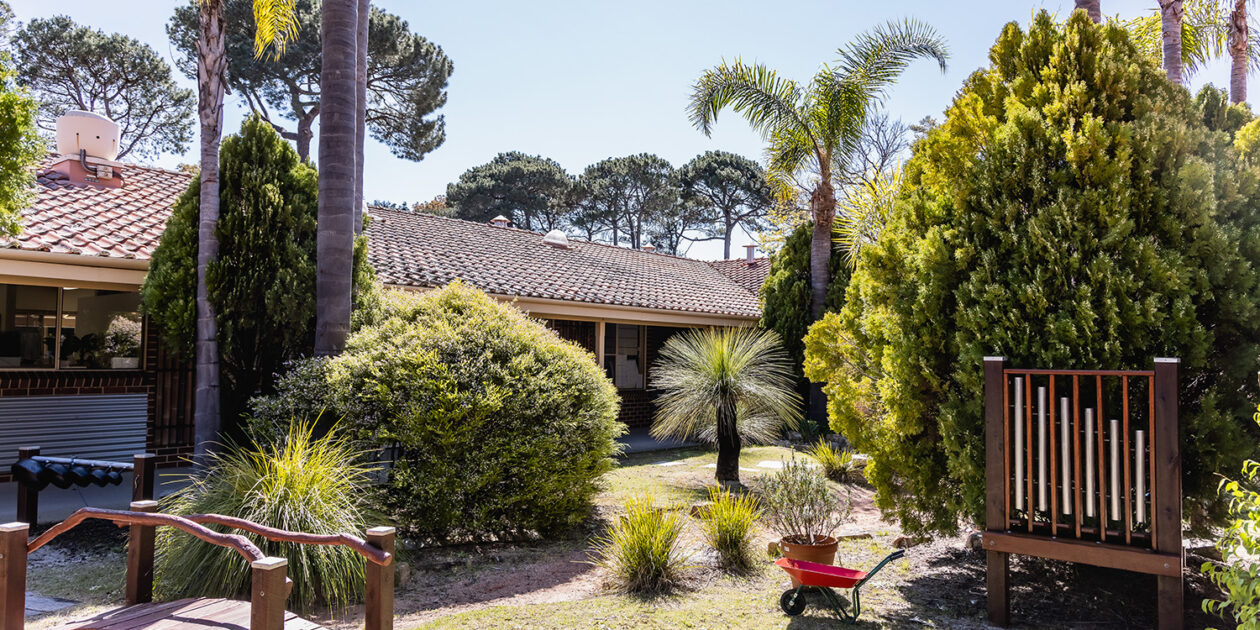Our philosophy

Curtin University Early Learning Centre supports the principles outlined in the United Nations Convention on the Rights of the Child, which maintains “that all children have the right to an education that lays the foundations for the rest of their lives.” To this end we are reflective in our practice to ensure current research, theories and understandings apply in the context of our unique service.
Children have a right to be heard, and their interests followed. This, in connection with close family ties, forms part of the planning cycle. The curriculum founded on the philosophical play-based approach uses authentic and real-life experiences along with open ended materials with a focus on natural elements that support children’s understandings of how the world works.
Our aim is to deliver rich, fun-filled experiences to each child so that they can develop into knowledgeable, respectful citizens of the society in a way that is innate for them during their most formative years.
We understand the importance of ensuring that children are kept safe and protected from harm and we are passionate about providing a healthy, safe environment. Their needs are met in terms of their sleep, rest, play and relaxation. Healthy eating is promoted using a menu designed for children from Food Safety and prepared by a qualified chef using fresh ingredients. The educators are well versed in child supervision, Child Protection, and qualified staff are up to date with first aid training. Room numbers and staffing ratios are followed with strict adherence to regulations.
The service believes that the environment is of great importance to the child’s learning. An aesthetically pleasing indoor environment with elements from home ensures that children feel warm and safe. Interactions with nature in the outdoors calls on children to use all 5 of their senses as they explore the outside environment. Children are provided opportunities to develop a sense of belonging to the broader community through the deliberate use of university facilities.
All endeavours are made to have a diverse range of qualified, quality staff across the service who have a passion to develop meaningful relationships with children.
All children are viewed as competent, capable, and curious individuals, they are social and independent, fully engaged, and explorative. They are given opportunities through play to demonstrate their agency, take on challenges, show resilience and demonstrate problem-solving skills. Each child is recognised as a unique individual with their own needs, abilities, and styles of learning. We ensure equity for children in an environment where they are welcomed, valued, and where diversity is respected. The service facilitates access for children with additional needs and is fully aware of the cultural diversity within its community. An approach of being sensitive to the individual, their needs, interests, strengths, and background is actively endorsed.
The link with home requires a commitment from educators and families to work together in partnership with shared understandings. This ensures that families are supported to be involved in the decision making of the service as well as share in the decision making of their child’s learning.
Further to this, the service is fully committed to reconciliation and is responsible for embedding indigenous practices of the Whadjuk Noongar people of Western Australia.
“Valuing and celebrating Aboriginal culture and identity enhances who we are as citizens of Australia, and this must form part of how we educate our youngest citizens”.
A Statement from Early Childhood Australia, Nov 2022.
The Curtin University values of Respect, Integrity, Excellence, Courage, and Impact along with Care and Empathy guide the early childhood community to develop relationships that reflect these values.
The Early Learning Centre offers reciprocity with the university by accepting their students for critical first-hand work experience and engagement in research and further study. Through this the Early Education Centre stays focussed on relevant practices and theories.
The Vision and Mission of the service offers the guiding statements to support positive dispositions and an inclusive learning approach. The service embraces quality improvement processes through reflective practices to ensure that children are in the forefront of everything it does.
The service engages the National Quality Standards, the Education and Care Services National Law Regulations 2012, the Education and Care Services National Law (WA) Act 2012, the Early Years Learning Framework V2 and the Early Childhood Australia Code of Ethics in its practices.